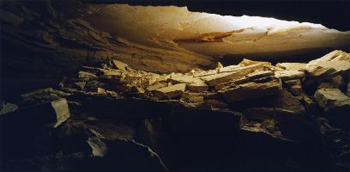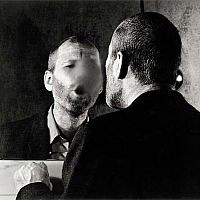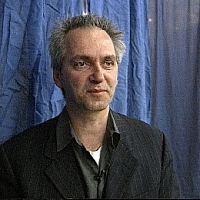
Museum Schloss Moyland Am Schloss 4 Bedburg-Hau 47551 Kleve Allemagne
Curator: Bettina Paust
Of great interest today, landscape photography is generally characterised by the horizon as an aid to perception. Within the international discourse on contemporary landscape photography, the present exhibition is the first to focus on those artistic visions which, each in its own way, mask and eliminate the horizon as the line separating earth from sky.
The process of perceiving and experiencing land as landscape is a phenomenon that originated in the art of the early modern age. Ever since the Renaissance, Western artists have employed perspective with its prominent horizon as a method to depict the threedimensional world. From the beginning of the twentieth century, however, this pattern of perception and representation has been transcended, as numerous artistic developments show.
In photography alone the representation of space has seemed to remain tied to the central perspective construction – for technical reasons. What happens to a picture and the perception of landscape when the horizon in its defined form and function is missing, when it no longer plays the role of a borderline between the earth and the heavenly spheres, thus determining pictorial space? How do people experience familiar landscapes that photographers have transformed into worlds unknown by using specific macroscopic and microscopic viewpoints?
This special view of landscape – "Landscape without Horizon" – brings together for the first time 15 international contemporary photographers, whose works, in very different ways, transcend the horizon, the traditional key to reading the structure of a landscape and getting one's bearings.
Daniel Gustav Cramer, Jitka Hanzlová and Thomas Struth offer a look into subtly differentiated forest scenes. Using widely diverging artistic approaches, Natalie Czech, Andreas Gefeller and Taiji Matsue scan the earth's surface, whereas Dieter Appelt and Zhao Liang explore the surface of bodies of water with great sensitivity. Miklos Gaál and Thomas Wrede defamiliarise reality. The self-evidence of landscape emerges in the work of Boris Becker and Adam Thompson while humanity feels lost in the scenes by Walter Niedermayr and Naoya Hatakeyama. Only the "landscape epiphanies" of Timm Ulrichs give the impression of abstract landscapes thanks to their apparent horizons, yet these are in fact visual fictions that take shape in the viewer's mind.
Publication:
To accompany the exhibition, a 144 page German/English catalogue with colour reproductions of all the 79 photographs of the exhibition and featuring texts by Bettina Paust, Hubertus von Amelunxen, Alexandra Kolossa and Laura Baumann will be published by the "Verlag für moderne Kunst Nürnberg".
Starting April 2010, we will be preparing the permanent collection of the Museum Schloss Moyland for the new presentation in the autumn of 2011.
The exhibition hall and park will remain open to visitors.



